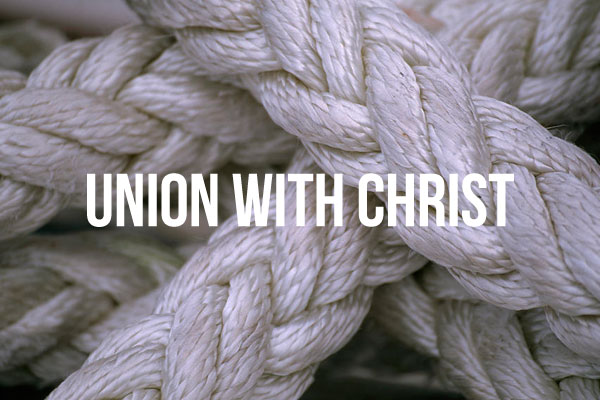Reflections On Self-Worth, Self-Esteem, Self-Confidence, Pride, and Conceit
Behind many of the horrible ideas that have been propounded and adopted in history are good intentions. But as we all know, the good intentions behind poorly reasoned and implemented ideas or concepts do not prevent the catastrophes that attend them. The communists, fascists, and eugenics of past decades all had some good intentions behind their destructive policies.
Similarly, in a bid to help people become more accepting of who they are, we popularised the idea of self-love, which, as it turned out, is a horrible pseudo-name for narcissism. We have started doing the same with “self-worth” and “self-esteem.” In an attempt to make people more confident and bold, we are starting to nurture pride and conceit on steroids.
The line between self-worth, self-esteem, self-confidence on one hand, and pride, arrogance, and conceit on the other is thin and it is easy to make many destructive mistakes. If you think using the word “destructive” is “bringing a gun to a stick fight (or bomb to a gunfight, if you prefer),” then remember that God opposes proud people (James 4:6) and that haughtiness precedes a downfall.
What follows are some reflections on these themes, an attempt to navigate through the thin lines.

Human worth and creation
The first place to begin is to say that indeed human beings are valuable and worthy because they are created in God’s image (Genesis 1:26). David was reflecting on the fact of creation and he concluded that he was “fearfully and wonderfully made” (Psalms 139:13-14).
This description is not limited to David for all the works of God’s hands are wonderful. Though sin has marred God’s perfect creation, even in its imperfect and fallen state, God’s creation is wonderful (though there are thorns and thistles, we still have beautiful flowers to exchange as a sign of love).
As the pinnacle of his creative activities, man bears God’s image, a fact that makes us special in the scheme of things. Therefore, every human being, irrespective of their social-economic status or physical features, is worthy and valuable by virtue of creation (fearfully and wonderfully made).
The problem of bloated self-esteem or self-image
While there is a sense of worth and value that is objective and universal, because it is rooted in creation, we often esteem ourselves based on our subjective perception of our worth and value derived from the things we possess, the things we know, the things we have achieved, etc.
The Bible teaches that our subjective esteem of ourselves is often bloated and overboard. In Romans 12:3, Paul warns us not to think of ourselves more highly than we ought. Instead, he wants us to think of ourselves with sober judgment that corresponds with “the faith God has distributed to each of you.”
In Galatians 6:3, he identifies those who think they are something when they are nothing and thus deceiving themselves. When resolving the dispute about things sacrificed to idols in his letter to the Corinthians, he warned those who had a bloated sense of their knowledge, forgetting that love is the heart of Christian fellowship. Such was the situation of the Laodicean church who thought she was rich, wealthy, and needing nothing when she was actually “wretched, pitiful, poor, blind, and naked” (Revelation 3:17).
Instead of overrating and overestimating themselves, Paul wants Christians to value others above themselves (Philippians 2:3), practicing the humility that took Jesus to the cross.
To summarise, as humans, we are often tempted to esteem ourselves beyond who we actually are. We overrate ourselves and inflate our abilities as a way of patronising ourselves (because of one successful album, we think we are the greatest musician ever liveth; because of one successful novel, we think our names should be in the same sentence as J.K Rowling). In a bid to make others increase their valuation of our worth, we put ourselves on pedestals that we do not belong to. We refuse to acknowledge our weakness, limitations, and sins, while we blow our strengths, abilities, and virtues out of proportion. The result is that while our reputation and “self-esteem” grow wild, our character suffers from devaluation and depreciation and instead of growing as humans, we remain in the same place or become a worse version of ourselves.
What this means is that we should be willing to admit that we can’t do some things, that we have certain weaknesses, that we don’t belong to certain “tables” just yet.

Let another man praise you
One of the ways the Bible helps us avoid this bloated self-esteem is to discourage us from praising ourselves and encourage us to leave it to others.
Solomon taught that a fool is wiser than the one who is wise in his own eyes (Proverbs 26:12). He then admonished us a chapter later to “let someone else praise you, and not your own mouth; an outsider, and not your own lips” (27:2).
Jesus was getting to the same thing in a parable he spoke in Luke 14:1-11. After observing how people were picking the places of honour at the table, he told a parable to change their orientation. If a man sits in a lower seat and the organiser of the feast comes around and instructs him to go to take a higher seat, it will be an honour to him. However, if, through a bloated sense of self-importance, he takes a seat higher than the organiser’s view of his importance in that event, he will be disgraced when the organiser tells him to go down to a lower seat. Jesus’s point? It is better to humble yourself and allow others to exalt you.
Paul also taught the same thing. He warned believers against being wise in their own eyes (Romans 11:25, 12:16). Instead of self-commendation, Paul said it is the one whom God commends that is approved (2 Corinthians 10:18). And when he was forced by the Corinthians to boast of his achievements, he wanted them to tolerate him as they would a fool (2 Corinthians 11:16).
David is an example of someone who followed Proverbs 27:2. Although he just killed the one who made all of Israel’s soldiers tremble, he did not boast about his achievements. He described himself to Saul as “the son of your servant Jesse of Bethlehem” (1 Samuel 17:58). It was the women of the towns of Israel who came out and sang his praise (1 Samuel 18:6-7).
Similarly, John described himself as someone who was unworthy to even lace Jesus’ sandals (John 1:29). But when Jesus would describe him he said there was no one born of women who was greater than him (Matthew 11:11).

Thank God I am not like this tax collector
A similar point is that our sense of our worth should not depend on a comparison with other people. Jesus used the example of the proud Pharisee who saw himself as accepted by God because he was better than the tax collector to discourage us from looking down on others or exalting ourselves. The Pharisee was not justified before God simply because he was better than the tax collector. He deceived himself.
Paul said something similar in Galatians 6:4: “Each one should test their own actions. Then they can take pride in themselves alone, without comparing themselves to someone else.” In his commentary on this verse, Douglas Moo writes, “We can always find people who are doing worse than we are in matters of the Spirit and take confidence from that comparison. But when we look at ourselves honestly and in light of God’s word and his expectations of us, the result will often be quite different.”
In his letter to the Corinthians, Paul again dismissed this attitude of comparing oneself to others, choosing instead to evaluate and esteem his ministry with reference to the sphere God had committed to him (2 Corinthians 10:12-14).
The fact that you can write better than others in your office does not make you the best writer in the country nor does the fact that you are more spiritual than your neighbour makes you the most spiritual man in town. Those comparisons are needless and they often contribute to bloated self-esteem.
The place of boldness and self-confidence
While we should not have a bloated sense of self-importance or be the ones showering encomiums on ourselves or esteem ourselves in comparison to others, it does not mean that we should not acknowledge our gifts and abilities. Rather, the point is that our esteem of ourselves should be true to the facts. If you are an average writer, focus on improving your trade rather than posing as a badass, award-winning, unicorn writer.
Once we have a true sense of our abilities, we are to be bold and confident about it. Humility is not the same as timidity. Jonathan was humble but he was not afraid to secretly invade the Philistine outpost and destroy them (1 Samuel 14:1-6). David, confident because of his previous victories over wild animals, was not afraid to fight Goliath (1 Samuel 17:32-44). Paul, confident of the work he did among the Corinthians, was not timid to claim them as the result of his ministry (2 Corinthians 3:1-5).
Both Paul (Romans 12:6-8) and Peter (1 Peter 4:11) want us to identify our gifts and abilities and confidently put them into action. We should have a true estimate of what God has given us and deploy them.
However, notice that in the above instances, their self-confidence and boldness were God-directed and so devoid of pride. Jonathan was confident because of the possibility that God would act on the behalf of him and his armour bearer (1 Samuel 14:6). David was bold to fight against Goliath because “the Lord who rescued me from the paw of the lion and the paw of the bear will rescue me from the hand of this Philistine” (1 Samuel 18:37). Paul acknowledged to the Corinthians that the sufficiency of him and his fellow ministers comes from God (2 Corinthians 3:5). And Peter urges us to exercise our gifts “with the strength God provides” (1 Peter 4:11). In Paul’s words, “what do you have that you did not receive” (1 Corinthians 4:7)?
Therefore, while we acknowledge our abilities and gifts and show the confidence and boldness to discharge them, we must do so with a recognition that those abilities and gifts come from God and that we need his help to discharge them.

The thin line between self-confidence and conceit
The last two paragraphs are important so that self-confidence does not turn to conceit (arrogance and pride). Conceit makes us think that we are somehow more valuable than other people who are not as rich, talented, capable, or knowledgeable. We see ourselves as untouchables, exalted above the “common people.”
Against this attitude, Paul warns that we should not be proud but be willing to associate with people of low position (Romans 12:15). He also warns us not to be arrogant because of our wealth but to put our hope in God and be generous to others (1 Timothy 6:17-19). A recognition that God is the source of everything we think makes us valuable and worthy (a wrong thought in the first place, see below) will humble us; similarly, a recognition that we are ultimately accountable to God for how we use them will make us see the huge responsibility to serve God and others through those gifts.
God opposes the proud (James 4:6) and so we must clothe ourselves with humility towards one another. Self-confidence and boldness must be rooted in the God who gifts us and enables us to be productive with those gifts rather than turning it into a means of looking down on others, declaring our independence from God, and exalting ourselves above him.

Beyond creation, the source of the Christian’s worth
However, not even those gifts or abilities must constitute our sense of worth and value. Gifts and abilities come and go; when they are foundational to our sense of self-worth, we will live unstable lives, tossed around by our circumstances and others’ perceptions.
Ultimately, the best way to avoid bloated self-esteem, self-exaltation, and conceit is to root our identity in Christ.
As Christians, we have been crucified with Christ and the life we now live is his life in us (Galatians 2:20). Union with Christ in his life, death, resurrection, ascension, and session at the right hand of God is the ultimate source of our identity, worth, and value. Because of that union, we are children of God (Galatians 3:26) and heirs of the Abrahamic promise (verse 29). What sense of worth and value can be higher than knowing that we are children of the holy and magnificent creator, sustainer, and redeemer of the whole universe?”
Knowledge of our union with Christ should lead to gratitude; we should praise God for his indescribable gift (2 Corinthians 9:15).
Another implication of this is that our identity, worth, and value are not ultimately in what we know, have, do, or have accomplished. James wrote in 1:9-11 that believers who are in humble circumstances should take pride in their high position (seated together with Christ in heaven) while those who are in a high position (and tempted to pride) should take pride in their humiliation (the fact that they are mere mortals saved only by grace). In the next chapter, he reminded those who want to treat the poor in the church as nonentities that God has chosen the poor to be rich in faith and inherit the kingdom God promised to those who love him (2:5). It is not what we own or not that makes us worthy and valuable, it is to whom we belong.
Instead of conceit that makes us see ourselves above others, our identity in Christ should lead us to forsake sin, walk in holiness and righteousness, and serve others humbly in love, doing good unto all men (Romans 6, Colossians 3:1-14, Ephesians 4:17-5:20, Galatians 5:13-15, 6:9-10). It is a call to humble service not to pride.
Our identity in Christ will also make us confident and bold in our commitment to live out our calling and vocation, topple the kingdom of darkness, and expand God’s kingdom, since the Spirit of God does not give us a spirit of timidity but of power, love, and self-discipline (2 Timothy 1:7). But, again, we will constantly realise that it is God who works in us both to will and do of his good pleasure (Philippians 2:13).
Similarly, when it comes to the specific gifts and abilities God has given us, we will not overrate and overestimate ourselves since we do not live for men’s applause or believe that our worth is in how men perceive us or how we perceive ourselves. (While we can do all things in relation to sanctification through Christ who strengthens us, God has still given us gifts and abilities in different measures and we must recognise the limits of our capacities — Romans 12:3). Instead, we will be content with what he has given us and seek to be faithful in the discharge of those gifts and abilities.
A final implication is that our sense of worth and value is built on a solid rock not on shifting sand. Our union with Christ will never be undone; those whom the Father has given to Christ, he will keep to the end (John 6:37-40). Our sense of worth and value does not change with circumstances, it is rooted in the eternal redemption that Christ has accomplished. Wealth will come and go, abilities will come and go, knowledge will be outdated or lost, but our union with Christ will never be undone. That is the solid ground upon which our self-esteem is built.

Conclusion
My worth is not in what I own
Not in the strength of flesh and bone
But in the costly wounds of love
At the cross
My worth is not in skill or name
In win or lose, in pride or shame
But in the blood of Christ that flowed
At the cross
I rejoice in my Redeemer
Greatest Treasure
Wellspring of my soul
I will trust in Him, no other
My soul is satisfied in Him alone
As summer flowers we fade and die
Fame, youth and beauty hurry by
But life eternal calls to us
At the cross
I will not boast in wealth or might
Or human wisdom’s fleeting light
But I will boast in knowing Christ
At the cross
I rejoice in my Redeemer
Greatest Treasure
Wellspring of my soul
I will trust in Him, no other
My soul is satisfied in Him alone
Two wonders here that I confess
My worth and my unworthiness
My value fixed, my ransom paid
At the cross
I rejoice in my Redeemer
Greatest Treasure
Wellspring of my soul
I will trust in Him, no other
My soul is satisfied in Him alone
I rejoice in my Redeemer
Greatest Treasure
Wellspring of my soul
I will trust in Him, no other
My soul is satisfied in Him alone
(Keith & Kristyn Getty – My Worth Is Not In What I Own ft. Fernando Ortega)


